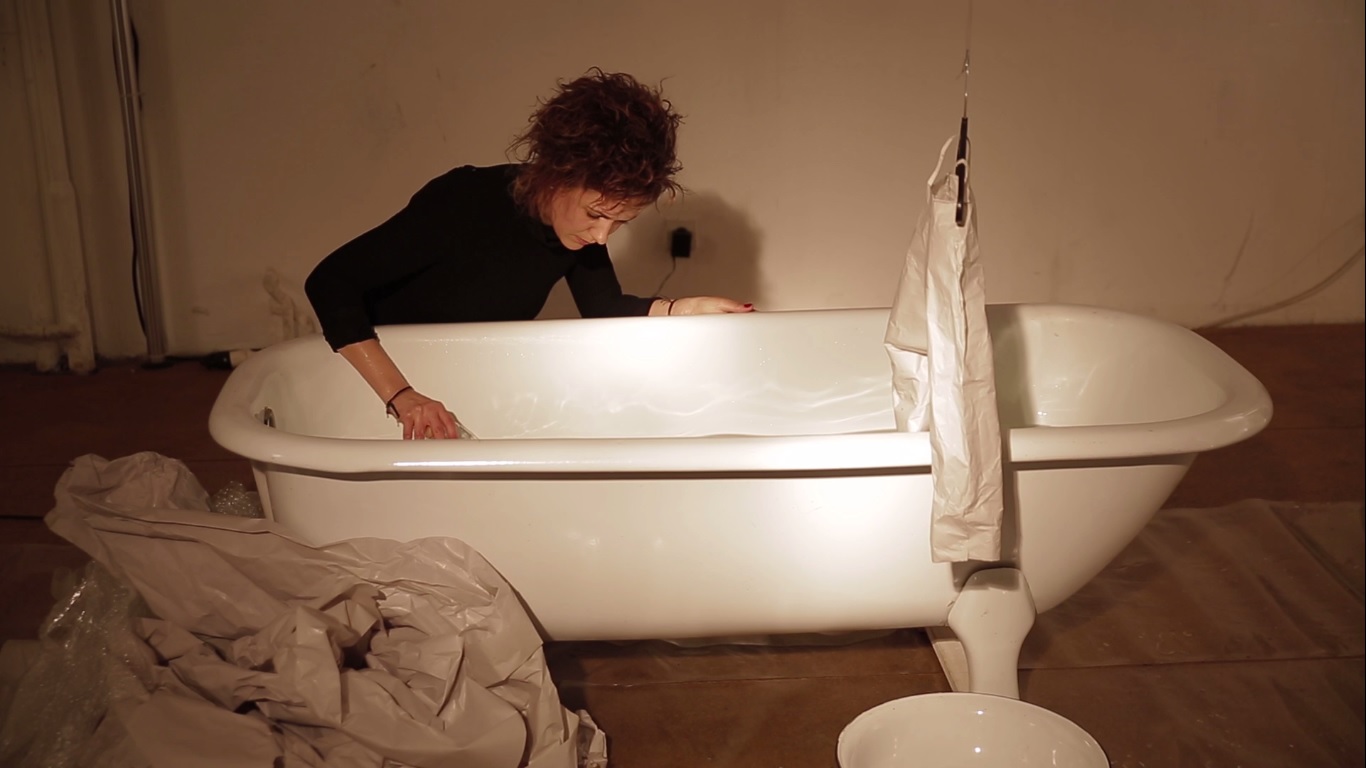Translated from German by Hester Underhill
7 days, 2 artists, 1 location – Two new artists are coming together every week to create a new event at Lettrétage as part of the CON_TEXT project.
Poet and publisher Daniela Seel met with CON_TEXT artists, Cia Rinne and Gernot Wieland, at Lettrétage. This is what they had to say.
Daniela Seel: Let’s start at the beginning – what made you decide to work together? Why were you interested by each other?
Cia Rinne: I think I was very irrational. I liked Gernot a lot from the off and could imagine myself working well with him. The only thing was that, unlike with the other possible partners I could have had, I did not have a clear idea what the two of us could do together. That sort of open-endedness poses a kind of challenge that I really like. The way we work is rather different to how I am used to working – I’m really glad that we met. Selecting our partners was a mixed experience. Meeting the other artists was great but it was also tainted by the fact that we would imminently have to pick out partners to work with, which is always an awkward thing to have to do.
Gernot Wieland: I also think that the conditions set out for us were peculiar. What would have happened if all ten of the artists wanted to work with Cia and no one wanted to work with another author? The chemistry was right between us, that’s all. But I equally don’t know how else you could organise it.
DS: The teams were finalised by the end of 2016; you had to be ready to present by late January. You must have had to move insanely fast?
GW: In the world of fine arts, there are different types of people. You’ve got certain people who like to go to their workshops, throw on their overalls and get cracking that way. I’m more of a “deadline artist” – I get invited to do a project that has a theme and a deadline and I create a piece of work for it. That’s what helps me.
Continue reading “Daniela Seel in conversation with Cia Rinne and Gernot Wieland”








